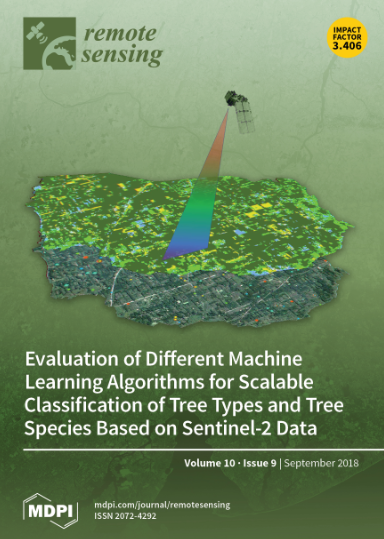Enhancing Significant Wave Height Retrieval with FY-3E GNSS-R Data: A Comparative Analysis of Deep Learning Models
IF 4.2
2区 地球科学
Q2 ENVIRONMENTAL SCIENCES
引用次数: 0
Abstract
Significant Wave Height (SWH) is a crucial parameter in oceanographic research, essential for understanding various marine and atmospheric processes. Traditional methods for obtaining SWH, such as ship-based and buoy measurements, face limitations like limited spatial coverage and high operational costs. With the advancement of Global Navigation Satellite Systems reflectometry (GNSS-R) technology, a new method for retrieving SWH has emerged, demonstrating promising results. This study utilizes Radio occultation sounder (GNOS) data from the FY-3E satellite and incorporates the latest Vision Transformer (ViT) technology to investigate GNSS-R-based SWH retrieval. We designed and evaluated various deep learning models, including ANN-Wave, CNN-Wave, Hybrid-Wave, Trans-Wave, and ViT-Wave. Through comparative training using ERA5 data, the ViT-Wave model was identified as the optimal retrieval model. The ViT-Wave model achieved a Root Mean Square Error (RMSE) accuracy of 0.4052 m and Mean Absolute Error (MAE) accuracy of 0.2700 m, significantly outperforming both traditional methods and newer deep learning approaches utilizing Cyclone Global Navigation Satellite Systems (CYGNSS) data. These results underscore the potential of integrating GNSS-R technology with advanced deep-learning models to enhance SWH retrieval accuracy and reliability in oceanographic research.利用 FY-3E GNSS-R 数据增强显著波高检索:深度学习模型的比较分析
显著波高(SWH)是海洋学研究中的一个重要参数,对于了解各种海洋和大气过程至关重要。获取 SWH 的传统方法(如船基测量和浮标测量)面临着空间覆盖范围有限和运营成本高昂等限制。随着全球导航卫星系统反射测量(GNSS-R)技术的发展,出现了一种新的获取 SWH 的方法,并取得了可喜的成果。本研究利用 FY-3E 卫星的无线电掩星探测器(GNOS)数据,并结合最新的视觉转换器(ViT)技术,研究基于 GNSS-R 的 SWH 检索。我们设计并评估了多种深度学习模型,包括 ANN-Wave、CNN-Wave、Hybrid-Wave、Trans-Wave 和 ViT-Wave。通过使用ERA5数据进行对比训练,ViT-Wave模型被确定为最佳检索模型。ViT-Wave 模型的均方根误差(RMSE)精确度为 0.4052 米,平均绝对误差(MAE)精确度为 0.2700 米,显著优于传统方法和利用气旋全球导航卫星系统(CYGNSS)数据的新型深度学习方法。这些结果凸显了将 GNSS-R 技术与先进的深度学习模型相结合,提高海洋研究中 SWH 检索精度和可靠性的潜力。
本文章由计算机程序翻译,如有差异,请以英文原文为准。
求助全文
约1分钟内获得全文
求助全文
来源期刊

Remote Sensing
REMOTE SENSING-
CiteScore
8.30
自引率
24.00%
发文量
5435
审稿时长
20.66 days
期刊介绍:
Remote Sensing (ISSN 2072-4292) publishes regular research papers, reviews, letters and communications covering all aspects of the remote sensing process, from instrument design and signal processing to the retrieval of geophysical parameters and their application in geosciences. Our aim is to encourage scientists to publish experimental, theoretical and computational results in as much detail as possible so that results can be easily reproduced. There is no restriction on the length of the papers. The full experimental details must be provided so that the results can be reproduced.
 求助内容:
求助内容: 应助结果提醒方式:
应助结果提醒方式:


